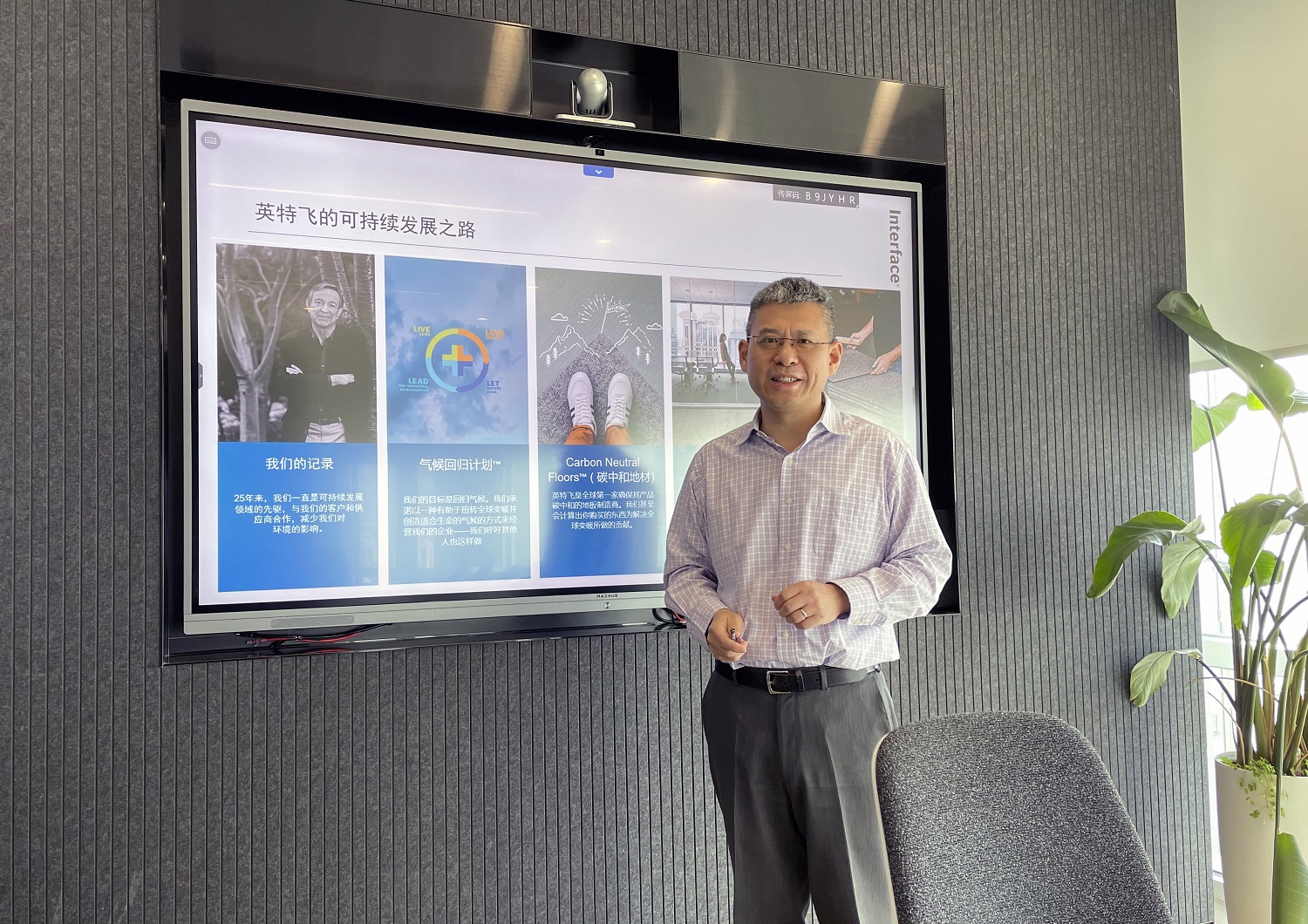While global warming is the biggest challenge facing humanity, what can we learn from industry pioneers on the crucial leadership characteristics driving successful sustainability transformation?
Interface Inc., is a global manufacturer of commercial flooring, made 25th place on Fortune’s Top 50 “Change the World” List of 2021, and recognized as Global Sustainability Leader for more than 20 consecutive years by GlobeScan and Sustainability. With every flooring product that it sells achieved carbon neutral since 2019, Interface is now marching towards their next milestone of Carbon Negative in 2040.
Joyce Guo, Partner of Odgers Berndtson Shanghai office speaks with Peter Zou, the General Manager of Interface North Asia to learn about their sustainability journey, and the leadership championing the transformation.
Leading with Purpose
Inspired by the quest of “what are you doing for the environment”, in 1994, founder of Interface, Ray Anderson declared that Interface was committed to becoming the world’s first environmentally sustainable and restorative company. Anderson set a seemingly radical goal for the firm: “Mission Zero®,” a commitment to eliminate any negative environmental impacts by the year 2020. This pioneering vision had set Interface on the road to becoming the purpose-driven business as they are today. Now the company is raising the bar to set an even bolder goal: “Climate Take Back™”, aim to make a difference to reverse global warming and reach Carbon Negative by 2040.
The mission is to pave the way to a climate fit for life.
“You need to truly believe in the purpose. Sustainability can not be a short-term target." Peter said.


 Shaping the Ecosystem
Shaping the Ecosystem
To have a real impact on the world, you need to not only change yourself, but inspire others to act as well. In Interface’s pursuit of Mission Zero®, their story influenced the actions of customers, employees and the broader business community. “Lead Industry Re-Revolution” is the term coined by Interface.
Changing our relationship to carbon isn’t something that can happen in isolation, it will take the collaboration of many partners.
Interface turned to their long-term supply partner and initiated Net-Works™ program, which sources material for carpet tiles from discarded fishing nets, show what can be accomplished when new thinking is applied to materials sourcing. Not only do the old nets get a new life, the villagers who collect them enjoy a cleaner environment and a new measure of economic independence.
Transforming the Business Model
With the vision set, it all needs to go back to the business model in order to make a successful landing. Organizations need to examine carefully the key drivers of carbon footprint and put in place the strategy and plan to reduce and eliminate negative environmental impact.
"We carried on our founder’s vision, it’s now what our organization believes and lives. Everyone in our company is brand and sustainability ambassador.” Peter said.
When the “Mission Zero®” ambition was firstly set, nobody was clear about how to get there, rather than the board and executive team was convinced that it’s the right thing to do. For Interface, the first priority was to reach zero emission from production, by adopting raw material not made from crude oil, power our plants with renewable energy, and eliminate waste during production. They invented a machine to separate backs with fibers, which made reclaiming and recycling of our carpets possible. These are the key enablers in their Carbon Neutrality journey, just buying carbon off-set from market is not sufficient to fully neutralize the carbon footprint from the major business activities.
There is sometimes a misperception that it costs more to be sustainable and therefore becoming less competitive in the market. From Interface’s example, if organizations can address sustainability from purpose to value chain and business model, you can eventually make sustainability your strengths.
Industries and business models might diverge, the leadership characteristics required to champion sustainability transformation shall converge. People are inspired and motivated by shared purpose, be employees, customers, or industry partners along the value chain. Organizations also need to step up in driving sustainability in the scopes of their direct and indirect impact (scopes 1, 2 and 3), bringing all players along the journey.
This transformational journey of sustainability calls for Purposeful Leadership.
To discuss your sustainability leadership needs, or your own career, please get in touch. We will be happy to help.



